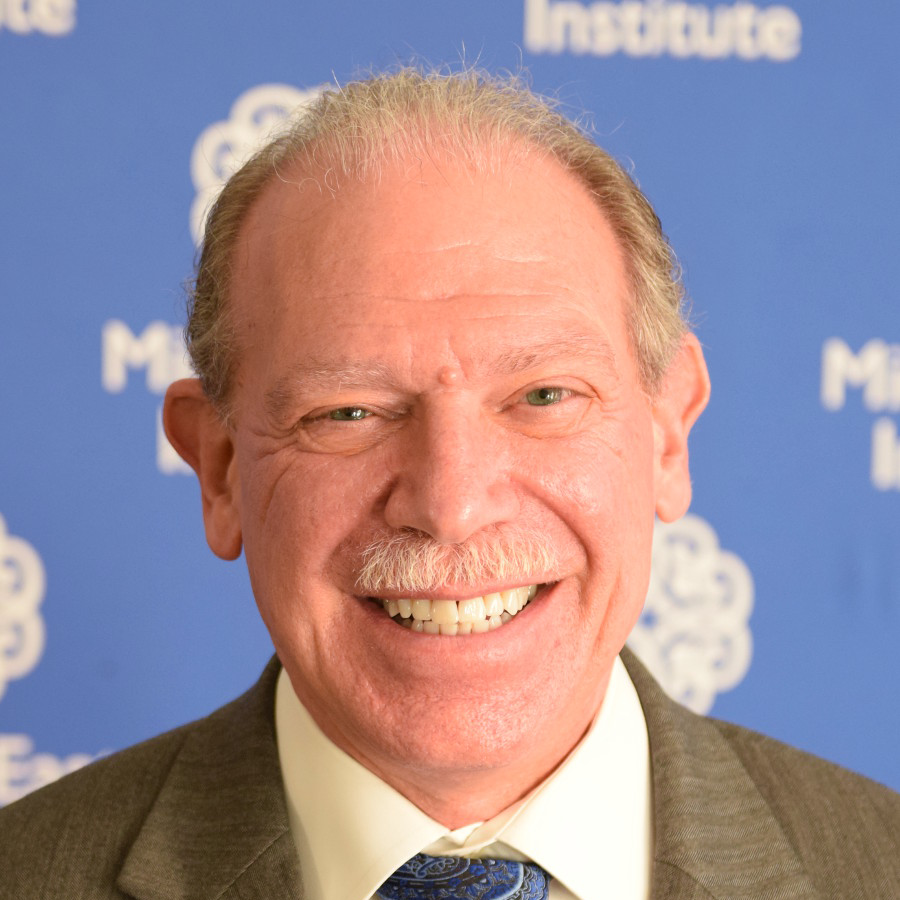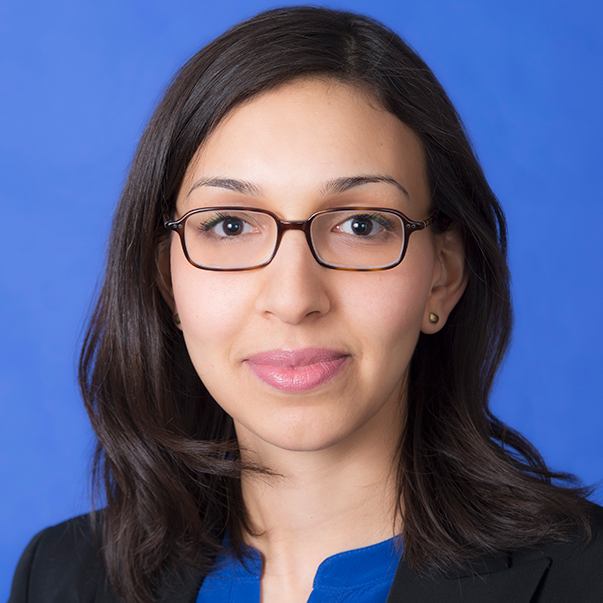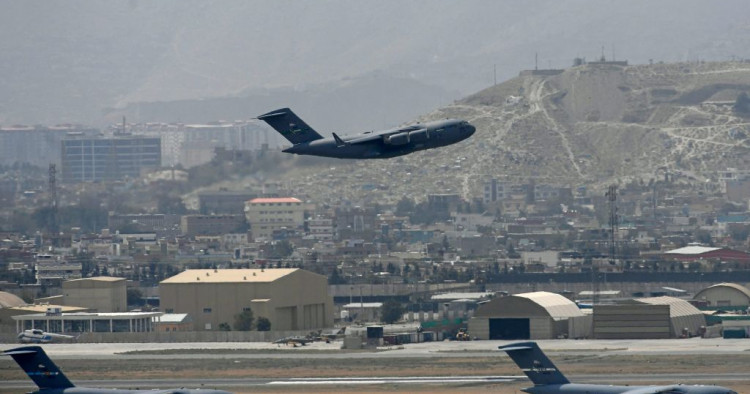Contents:
- Twenty years on from 9/11: A moment of national introspection
- Governing as the Achilles’ heel of the Taliban
- Morocco’s elections and the rise of the businessperson-politician
Twenty years on from 9/11: A moment of national introspection
Gerald M. Feierstein
Senior Vice President

The withdrawal of U.S. military and diplomatic personnel from Afghanistan over the past several weeks accompanied by a desperate exodus of fearful Afghans has precipitated a moment of national introspection. New publications, press commentaries, and social media are filled with retrospectives — personal stories as well as policy analyses — that seek to provide context for the 20 years that have passed from the moment that hijacked planes struck the World Trade Center towers and the Pentagon until today. Many of them seek to establish scorecard determinations of wins and losses.
A great deal of the analysis, fittingly, is focused on the War on Terror and the question of whether the world is safer today than it was in 2001. Undoubtedly, the U.S. has been successful in eliminating much of the senior leadership of al-Qaeda, beginning with Osama bin Laden, and denying violent extremist groups like the Islamic State and al-Qaeda in the Arabian Peninsula the ability to control territory. But it’s equally true that these groups are far from eliminated, that violent Islamic extremism has metastasized and is now more widespread than ever, and al-Qaeda itself may be enjoying a resurrection as the Taliban regain control in Afghanistan.
But the end of the Afghanistan project and return of the Taliban to the seat of power in Kabul has also stirred a reconsideration of broader U.S. engagement in the Middle East over the past two decades, including the interventions in Afghanistan and Iraq, and U.S. support for regime change in Egypt, Libya, Yemen, and Syria. Note is taken of the tens of thousands of American, Afghan, Iraqi, and other lives lost or damaged and the trillions of dollars expended without achieving tangible advances in stability, security, or prosperity for the region or the affected populations.
This is an appropriate moment to step back and re-examine long-standing assumptions about U.S. interests and policies, its role in the region, and its ability to achieve positive results that improve the lives of Americans or our friends in the region. But there’s also a danger in over-learning lessons and concluding that, because the U.S. did not achieve all of its objectives in the enormously complex projects that it undertook, that therefore we should refrain from undertaking similar initiatives in the future. Despite this moment of regret and disappointment, we should not lose sight of the capacity of the U.S. to bring about positive change in the Middle East or shirk from our responsibilities as a global leader. To abrogate our role now, leaving the door open to far less benign forces, would mean a darker future for Americans and the world.
Governing as the Achilles’ heel of the Taliban
Marvin G. Weinbaum
Director, Afghanistan and Pakistan Studies

Having solidified their hold on the country militarily, the Taliban now face the onerous task of governing. They may have proved their mettle in battle but seem patently ill-equipped to assume the task of ministering to the needs of a highly diverse and divided country of over 38 million. With the announcement of a “caretaker” cabinet and 33 members named to senior government positions, the major qualification appears to be that they are veteran figures in the Taliban movement. Promises to form an inclusive government now seem hollow. Nearly all the senior posts are to be held by ethnic Pashtuns. No women have been chosen to occupy a high office. Absent as well are the supplicant politicians from the previous regime who sought to have a piece of the new government. As long suspected, power sharing is viewed as antithetical to the Taliban’s notion of constructing a pure Islamic state. Inclusion for the Taliban amounts to little more than a willingness not to reject any elements of Afghan society ready to submit to the new political order.
All of the top appointments in the Taliban government have gone to veteran figures in the movement in what is a dividing of the spoils. As had been previously announced, Sheikh Haibatullah Akhundzada will continue as spiritual leader, now as Amir-ul-Momineen, but without the unchallenged political authority once wielded by Mullah Omar. Mohammad Hasan Akhund, who was the foreign minister in the last Taliban government, will lead the new government with Mullah Abdul Ghani Baradar, co-founder of the Taliban movement and the lead figure in past negotiations, serving as his deputy. The key posts of defense minister and interior minister will go to Mawlawi Muhammad Yaqoub, son of Mullah Omar, and Sirajuddin Haqqani, the Taliban’s head of military operations. Named to the foreign ministry is Amir Khan Muttaqi, a Taliban negotiator in Doha.
Delay in announcing the roster of ministers and other officials reflects the deep divisions among various Taliban factions. While united in their determination to maintain a firm grip on power and in their belief in a true Islamic state, they diverge on strategies and are divided by clashing personal ambitions. Differences exist between the Haqqani wing and the Doha leadership, and between those who want to follow a hardline in exercising power and those inclined to showing a softer side of Taliban governance. There are also competing power centers emerging in Kandahar and Kabul, and dissimilar perspectives among field commanders and the movement’s political leadership. These cleavages could widen further as the Taliban encounter the tough decisions that inevitably go with governing.
As is often pointed out, the Afghanistan of today is very different than the country of 20 years ago. There emerged during the republic’s democratic experiment a growing urban generation of educated citizenry invested in a modern economy and open society, and greatly dependent on government for employment and services. By contrast, the decimated, exhausted, and heavily depopulated country the Taliban ruled over for five years beginning in 1996 expected very little from government. Outside of providing an informal but effective judiciary, the Taliban paid little attention to actually governing. The few public services available in the cities were assumed by international aid agencies and nongovernment organizations.
In establishing shadow provincial governments during the post-2001 insurgency the Taliban undoubtedly gained administrative experience. But the responsibilities of governance now confronting the national leadership are different and far more challenging, especially for a regime that like its predecessor favors centralized rule. Although the new regime would like to retain the services of the previous government’s technocrats, few are likely to remain, especially as the economy melts down and ultra-conservative social and cultural restrictions are imposed. Taliban leaders will welcome international humanitarian and economic assistance but may not allow the foreign presence needed to provide expertise and oversight. With financial collapse and famine looming, governance may well become the Achilles’ heel of the Taliban regime.
Follow on Twitter: @mgweinbaum
Morocco’s elections and the rise of the businessperson-politician
Intissar Fakir
Senior Fellow and Director of Program on North Africa and the Sahel

On Sept. 8, Morocco will hold its parliamentary, regional, and local elections. Most Moroccans dismiss the elections as an exercise in futility as the role of elected officials remains limited compared to the palace. But these elections do not reflect the usual dynamic of loyalist versus opposition party, nationalist versus leftist, or secularist versus Islamist parties. This time around, it is less about the parties themselves and more about the rise of the archetype of the businessperson-politician.
After an extensive voter registration effort, Moroccans will elect 395 parliamentarians and representatives for 678 seats in regional councils from 31 political parties presenting lists. Underpinning this election is an amended electoral law that is expected to diminish the influence and power of larger parties like the Islamist Justice and Development Party (PJD) that has led the governing coalition for the past two election cycles. However, curbing the PJD’s power has little to do with its ideology, and is more about creating a new type of political engagement that empowers individuals over party structures and gives more avenues for business interests (which are often backed by wealthy individuals). In recent years business and commercial interests have become an increasingly important incentive and determinant of political success, compounding the intersection of politics and business. The figure that currently embodies this intersection most powerfully is Aziz Akhannouch of the National Rally of Independents (RNI) party. Over the past 10 years, there have been other examples of businessmen building stronger political profiles locally and regionally with party affiliation more of a secondary consideration.
The rise and growing influence of businessman-politicians reflects the monarchy’s focus on business and commercial success and the broader political vision that views strong national business and economic performance as the basis for domestic stability and foreign policy influence. It is a vision that is less concerned with democratic structures and more focused on effective governance and strong development. The challenge for the palace and the businessperson-politicians empowered is to deliver on the post-pandemic economic recovery and to address urgent social development challenges.
Follow on Twitter: @IntissarFakir
Photo by AAMIR QURESHI/AFP via Getty Images
The Middle East Institute (MEI) is an independent, non-partisan, non-for-profit, educational organization. It does not engage in advocacy and its scholars’ opinions are their own. MEI welcomes financial donations, but retains sole editorial control over its work and its publications reflect only the authors’ views. For a listing of MEI donors, please click here.













